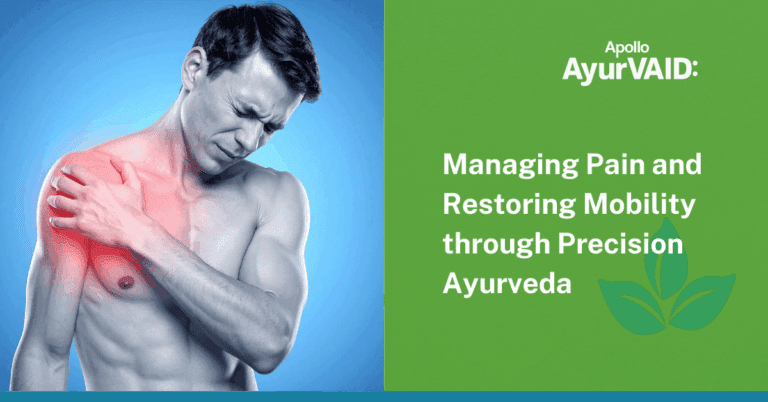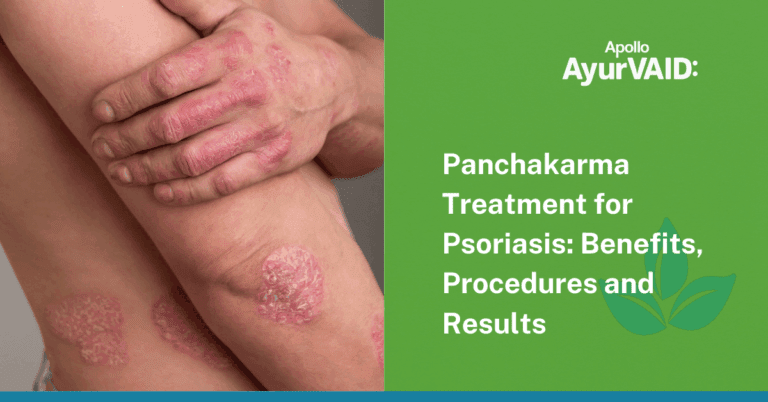Cancer doesn’t just hit the body — it touches every corner of your life. A tiny bump, a sudden cough, a wave of exhaustion you can’t explain. At first, it’s easy to shrug off. But slowly, quietly, life begins to shift. What starts as an ordinary day turns into scans, biopsies, waiting rooms, and an avalanche of information that feels anything but human.
That’s the moment many patients ask: Isn’t there more to healing than destroying what’s wrong? Integrative Oncology begins to answer that question. It’s not an alternative – it’s an addition. Here’s an integrative oncology definition: a holistic medical approach that blends standard cancer care with complementary therapies for improved patient outcomes. It’s a comprehensive care model that combines the best of conventional cancer treatments – chemotherapy, radiation, immunotherapy – with the evidence-based, time-honoured principles of Ayurveda.
Can Ayurveda cure cancer? Not on its own! But it can help you in your cancer journey. This isn’t about choosing sides. It’s about creating synergy – to ensure that the person fighting cancer receives the best care and the best treatment outcomes. From chemotherapy side effects management to restoring emotional well-being, Ayurveda offers tools that are often overlooked – tools for nourishment, balance, and long-term well-being.
Whether it’s Ayurvedic treatment for cancer stage 4, or simply easing the overwhelming effects of chemotherapy, this integrative approach places the person, not the disease, at the centre. So what happens when cutting-edge research meets centuries of healing tradition? You get a whole-person model of cancer care — one that treats not just the tumour, but the terrain it grew in.

Integrative Cancer Care: Future of Cancer Treatment
Modern oncology is incredible. Let’s be clear — no one’s suggesting otherwise. We’ve come a long way with chemotherapy, radiation, immunotherapy, targeted drugs — you name it. But it often comes with a price. Nausea, brain fog, fatigue, nerve pain, fear, isolation — and sometimes, a gnawing sense of “I don’t feel like myself anymore.”
This is where integrative care makes all the difference. It doesn’t replace your oncology treatment. It supports it. It complements conventional cancer treatment with oncology nutrition, a diet plan for cancer patients, treatment protocols to fight the tumour microenvironment, and survival with strength.
Whether you’re at risk for developing cancer, newly diagnosed, midway through chemo, or facing the effects of chemotherapy post-treatment, integrative oncology has something real to offer.
Ayurveda & Cancer Care
Ayurveda provides personalised, precision-based interventions that help reduce treatment-related side effects, support faster recovery, and improve overall functional health. More importantly, it focuses on preventing recurrence and disease progression while enhancing quality of life, ensuring that patients survive and regain long-term well-being and vitality.
Primary Risk Prevention: Stop Cancer Before It Starts
Maybe cancer isn’t here yet, but the risks are. Genetics, lifestyle, inflammation, and hormonal imbalance – these quietly increase cancer susceptibility over time. Ayurveda works at the root by:
- Balancing Agni (metabolism)
- Reducing Ama (systemic inflammation) – a major enabler of tumour microenvironment
- Supporting Srotas shodhana (detoxification)
- Enhancing Ojas (immune response)
Secondary Prevention: Catching Early Changes
Cancer doesn’t show up suddenly. There are early signs — BI-RADS 2/3/4, cervical dysplasia, or low-grade lesions — where early intervention can mean reversal. Here, Ayurveda offers conservative, whole-body strategies:
- Supports the natural regression of early lesions
- Manages comorbidities like diabetes or obesity that fuel tumour progression
- Restores internal and hormonal balance to reduce tumour-promoting microenvironment
Adjuvant Care: When You’re In Treatment
Tertiary Prevention: Supporting Long-Term Recovery
Tertiary prevention steps in to support patients after their main therapies, like chemotherapy or radiation, are complete. This stage focuses on long-term recovery through palliative care, rehabilitation, and close monitoring. It helps:
- Ease residual symptoms like fatigue, pain, or digestive issues
- Reduce the risk of cancer relapse or spreading
- Address the emotional and physical after effects of chemotherapy
- Support functional independence and quality of life
Cancer Survivorship: Supporting Life After Treatment
Survivorship care addresses long-term health and well-being after cancer treatment. This includes:
- Helping manage late side effects
- Supporting emotional health and lifestyle adjustment
- Encouraging regular monitoring
- Promoting lasting strength and vitality
End-of-Life Care: When the Focus Is Comfort, Not Cure
For those facing the final stages of cancer or transitioning to palliative care, the goal shifts from fighting to comfort, dignity, and peace. Ayurveda has a deeply compassionate role here:
- Managing pain through external therapies
- Reducing digestive distress and improving sleep
- Emotional support – not just for the patient, but also for the family
Helping you feel heard, seen, and supported
AyurVAID’s Integrative Cancer Care
The Integrative Cancer Care (ICC) at AyurVAID is built with this full spectrum in mind. Our integrative oncology services include personalised nutrition, Ayurveda therapies, and lifestyle-based recovery plans tailored to each individual’s journey. At AyurVAID, cancer care goes beyond just treating the disease. We focus on restoring balance through personalised nutrition, lifestyle changes, Ayurveda therapies, and mental well-being to support recovery, reduce side effects, and improve long-term health.
Cancer and its treatment can disrupt metabolism, often leading to undernutrition or overnutrition, which fuels inflammation and weakens immunity. Our tailored nutrition plans address these imbalances and create a body environment that resists tumour growth.
Fatigue, anxiety, and disrupted routines are common during treatment. That’s why we include daily routines, stress-reducing practices, and emotional support to help patients regain strength and stability. Ayurveda therapies like Amapachana (to reduce inflammation), Agnideepana (to support metabolism), and Rasayana (to rebuild vitality) work together to enhance healing and improve quality of life.
By bringing it all together, diet, lifestyle, medicine, and mental health, our integrative model supports not just survival, but true recovery. Whether it’s Ayurvedic treatment for lung cancer, support during breast cancer recovery, or even regaining strength between chemo cycles, Integrative Cancer Care adapts with you. This holistic cancer treatment approach places the person, not the disease, at the centre.
Conclusion







